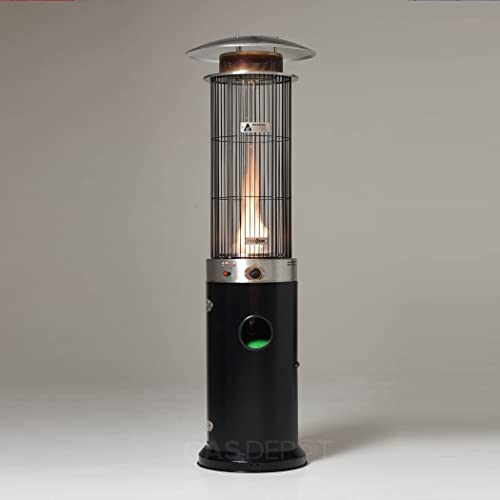Understanding Heating Equipment: Types, Applications, and Considerations
Heating equipment plays a crucial function in maintaining comfy living and workplace. Whether in property or commercial settings, efficient heating unit are important for health, convenience, and performance. This post explores different types of heating equipment, their applications, and essential factors to consider for picking the ideal heating system for specific needs.
Types of Heating Equipment
Heating equipment can be broadly categorized into various classifications based on fuel type, heating technique, and application. Below are the most common types:
| Type of Heating Equipment | Description | Typical Applications |
|---|---|---|
| Heaters | A combustion heater that warms air and disperses it through ducts. | Residential homes, commercial buildings. |
| Boilers | Heats up water to produce steam or warm water for heating space or providing hot water. | Radiant heat, commercial processes. |
| Heat Pumps | Transfers heat from the air, ground, or water, using electrical power to help with cooling and heating. | Residential homes, zoning systems. |
| Radiant Heaters | Heats up items straight without heating the air in between, frequently through electric coils or warm water. | Residences, health clubs, workshops. |
| Space Heaters | Portable heaters that offer direct heat to a small area. | Houses, garages, workshops. |
| Water Heaters | Heats up water for domestic uses, can be tankless or storage types. | Residential restrooms, kitchen areas. |
1. Heaters
Heating systems are among the most typical heater, especially in colder environments. They can be powered by numerous fuels, consisting of natural gas, propane, oil, or electricity. This equipment operates by heating air and distributing it through ductwork.
Advantages of Furnaces:
- Efficient heating throughout big spaces.
- Can be integrated with air conditioning systems for year-round environment control.
2. Boilers
Boilers are substantial for heating water and producing steam for main heating systems. Unlike heaters, which heat air, boilers distribute hot water or steam through pipelines to radiators or underfloor heating systems.
Advantages of Boilers:
- Provide even heat distribution and maintain humidity levels.
- Can use renewable energy sources, such as wood pellets or solar energy.
3. Heat Pumps
Heatpump, frequently thought about versatile, can efficiently heat and cool spaces. These systems work by drawing out heat from outside sources (even in cold weather) and moving it indoors.
Advantages of Heat Pumps:
- Energy efficient and can lead to lower energy costs.
- Eco-friendly as they utilize renewable resource.
4. Radiant Heaters
Radiant heat systems are developed to heat things straight without warming the surrounding air. This approach is often more efficient, as it minimizes heat loss.
Advantages of Radiant Heaters:
- Offer focused heating for targeted locations.
- Improve convenience by maintaining more constant temperatures.
5. Space Heaters
Space heaters are portable systems that supply extra heat in localized locations. They can be electrical, propane-fed, or kerosene-based.
Advantages of Space Heaters:
- Cost-effective for heating little spaces.
- Versatility to move as required for convenience.
6. Hot water heater
Hot water heater are crucial for providing warm water for domestic usage, including bathing, cooking, and cleansing. They come in various types, including tankless, solar, and traditional tank-style heaters.
Advantages of Water Heaters:
- Essential for day-to-day health and household convenience.
- Energy-efficient options available.
Key Considerations When Choosing Heating Equipment
Choosing the ideal heating equipment is vital for effectiveness and convenience. Here are some crucial factors to consider to keep in mind:
- Energy Source: Assess the schedule and expense of different fuel sources in your location. Gas tends to be more efficient, while electric systems might provide convenience.
- Size Requirements: Select a system sized appropriately for your space. Small units may struggle to heat adequately, while extra-large designs can cause inefficient heating and greater energy costs.
- Energy Efficiency: Look for equipment with high energy efficiency rankings. Buy Commercial Patio Heaters with ENERGY STAR labels can assist with cost savings and ecological conservation.
- Installation and Maintenance Costs: Consider both in advance purchase costs and long-term maintenance expenses. Some systems might have higher initial costs but lower functional expenditures.
- Ecological Impact: Evaluate options that decrease carbon emissions and decrease general environmental footprints, such as solar hot water heater or heat pumps.
Regularly Asked Questions (FAQs)
What is the most efficient kind of heating equipment?
The effectiveness can differ, however heat pumps are generally thought about highly efficient, particularly in milder climates. They can provide significant energy cost savings compared to conventional heating approaches.
How typically should heating equipment be serviced?
Generally, it is recommended to service heating unit at least as soon as a year. Routine upkeep makes sure efficient operation, longevity, and safety.
How can I enhance the effectiveness of my heating unit?
- Routinely change or clean filters.
- Seal leaks in ducts and windows.
- Usage programmable thermostats to manage temperature levels efficiently.
Exist eco-friendly heating options offered?
Yes, options such as solar hot water heater, biomass boilers, and geothermal heatpump supply environmentally friendly heating solutions that use renewable resources.
What size heating unit do I need for my home?
The size will depend on various factors, consisting of the home's square video, insulation quality, and regional environment. Garden Heating can carry out a load computation to determine proper sizing.
Heating equipment is a crucial aspect of building convenience and performance. With different options offered, understanding the types and their applications is important for making informed choices. By thinking about energy sources, equipment sizing, effectiveness, and environmental effects, house owners and organizations can ensure their heating systems fulfill their needs successfully.
In conclusion, the best heating service typically involves balancing initial expenses, operational performance, and environmental considerations-- ensuring a warm and comfortable living environment for many years to come.

